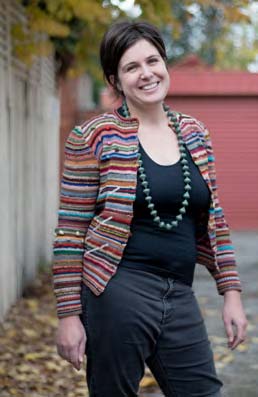The slow movements’ gradual transformation of every facet of our lives has (unhurriedly) extended itself to the rabid international fast-fashion industry. While the idea of ‘fashion’ might seem frivolous to those of us who walk the path of permaculture, the way we clad ourselves can have a very alarming environmental impact, and one which we often overlook while we’re busy in the garden, smelling the rosemary.
If you own clothes, then you are almost certainly a participant in the fast-fashion industry. Open your wardrobe. Have a really good look. Who made your clothes, socks and undies? What are they made of? Where did you get them? How long have you owned them? When will you replace them? And where will they go when you’re done with them?
Fashion – though the word might make you cringe – is something we all participate in, one way or another, on a daily basis. Clothes are our wrappers: they tell the world who we are, and carry their very own cultural and personal identity baggage. They can tell us much about class, status, occupation, wellbeing and culture, so it’s no wonder we’ve been coerced, collectively, into the trillion dollar fast-fashion industry, ever striving to perfect the image of ourselves we wish to project to the world.

